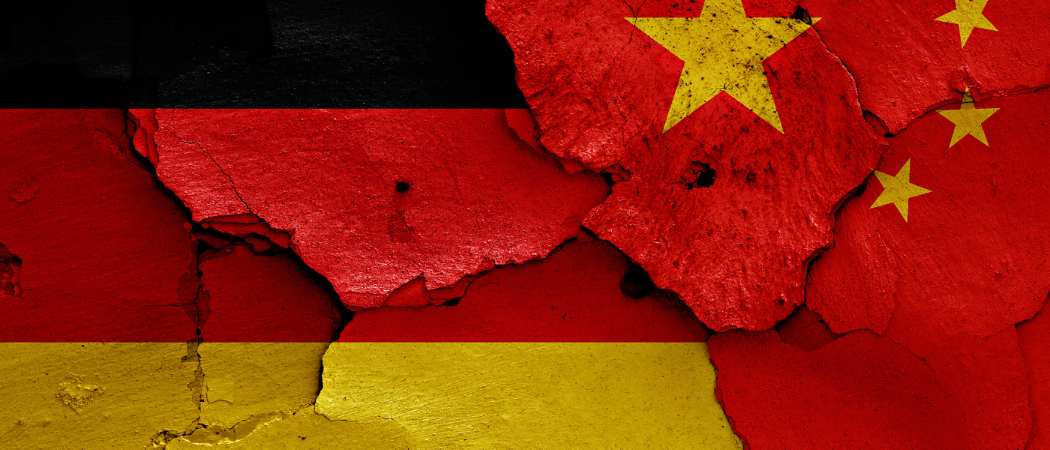The research minister is calling for a review of university collaborations with China. Science organisations point to a lack of regulations and warn over potential red lines

Photo credits: budastock / BigStock
Last Monday, the Federal Public Prosecutor's Office in Germany announced the arrest of three suspected science spies who are alleged to have procured information on dual-use technologies for the Chinese secret service. They were in contact with several German universities and had signed a contract with one of them.
Research by Table.Briefings suggested that the university in question was Chemnitz University of Technology. Here, the suspects’ company commissioned a study on the topic of plain bearings that are used to guide moving parts in machines.
Chemnitz University of Technology has confirmed it had a collaboration with the suspects’ company in the period from July 2022 to March 2023 to carry out the plain bearings study. The university said this was, "classified as unobjectionable under foreign trade law following a mandatory administrative review.”
The University of Duisburg-Essen and the University of Stuttgart have confirmed having talks with the company. In Duisburg-Essen, discussions were held on autonomous driving and a conference was sponsored by the suspects’ firm. One professor was involved in a company associated with the suspects. However, there was no concrete, contractually fixed cooperation, the universities say.
In response to these revelations, research minister Bettina Stark-Watzinger has now called on universities to review their collaborations with China. An even more critical assessment of the risks and benefits of cooperation, especially in science and universities, is necessary. Support would only be given to projects “that have clear added value for Germany and Europe”, she told Wirtschaftswoche.
In Germany, academic freedom has constitutionally protected status, but this also comes with responsibility for universities and research institutions, said the minister. She announced that information and awareness raising in universities and research institutions would be further intensified, together with the responsible authorities. In addition, an expansion of independent China expertise would continue to be supported.
The Federal Office for the Protection of the Constitution (BfV) also believes that there is an urgent need for action. “German universities often lack sufficient sensitivity to be able to correctly assess the dangers of espionage and the high risk of losing expertise, as well as appropriate protective measures,’ wrote the BfV in its in-house magazine in 2023.
The BfV’s vice president, Sinan Selen, followed this warning at a recent business event when he announced that his organisation wants to pay more attention to Chinese activities involving spin-offs from universities and start-ups. China wants to use research cooperation in the civil-military sector to obtain technologies that can also be used for military purposes, he said.
Germany’s 2022 report on threats to its constitution described China as “the greatest threat in terms of economic and scientific espionage”. However, when asked by Table.Briefings, the BfV declined to comment on specific indications of espionage in the scientific sector.
The scientific response
The scientific community is now discussing how to act in future in this area of tension between academic freedom, its own interests in international research cooperation, and the sometimes conflicting demands of politics.
The German University Association, for example, is calling for overarching standards to be developed jointly by science and politics. Universities could then orientate themselves to these standards. In addition, “qualified, cross-institutional information and counselling services are needed”, a spokesperson told Table.Briefings. This would enable decisions to be made about “with whom and in which areas exchange and cooperation are justifiable” while maintaining academic autonomy.
TU9, a group of German universities of technology, is also calling for more advisory services. At the same time, when asked by Table.Briefings, it acknowledged that autonomy also means the universities themselves also have to take responsibility, and want to “create internal structures, expertise and an awareness of the political dimension of scientific relations”. Any red lines that curb this autonomy must be carefully drawn by politicians and communicated clearly and consistently.
In addition to the establishment of new structures and processes, the German Rectors’ Conference is calling for better dovetailing of existing resources. Overall, it is “clear that we are talking about a considerable need for investment here, which the federal and state governments must address,” the group said.
The science ministry’s recent position paper on research security also outlines what possible new measures could look like. The aim is to develop guidelines and lists, and to examine the establishment of a central “clearing centre” to better inform academics and their organisations. However, it remains unclear who will take the initiative for what and when. And above all, who will provide the money.
Canada shows that clearer guidelines are possible: since the beginning of 2024, applications for research funding will no longer be approved there if they concern a sensitive research area and one of the researchers applying is associated with an institution that is classified as unsafe. To this end, the government will provide lists containing both the security-relevant topics and the institutions concerned. A research security centre is also available to advise researchers.
The EU appears to be moving in a similar direction, as a factsheet from January makes clear. It is thought to want to develop a due diligence tool based on the China Defense Universities Tracker, created by the Australian Strategic Policy Institute, and establish a European centre of expertise on research security to provide expertise and network the community.
This text appeared for the first time in Research.Table, a professional briefing from the largest independent start-up for quality journalism in Germany. The editorial team reports for the key people in the research scene who set and fill the framework for science, research and development.





 A unique international forum for public research organisations and companies to connect their external engagement with strategic interests around their R&D system.
A unique international forum for public research organisations and companies to connect their external engagement with strategic interests around their R&D system.